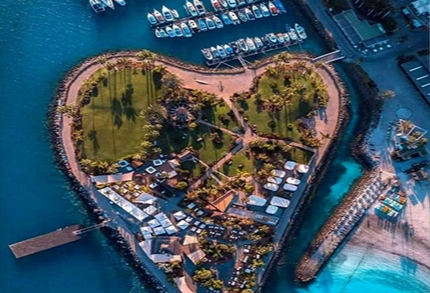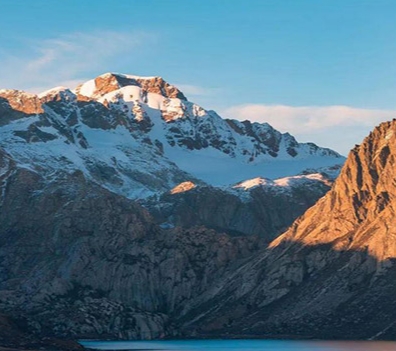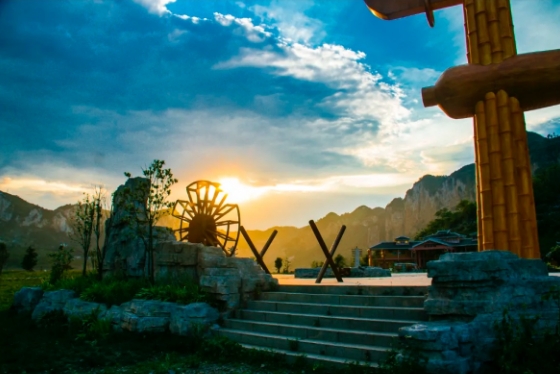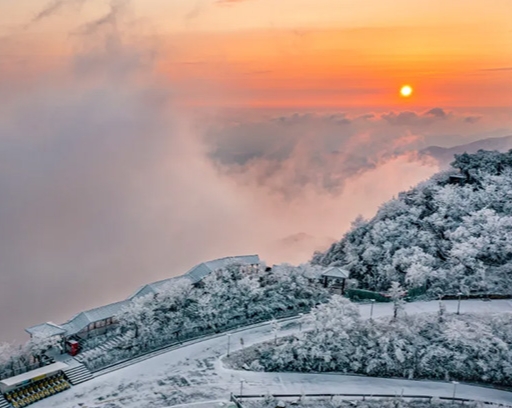Give Full Play to the New Leadership of Progressive Entities and Jointly Build a More Sustainable World Tourism Industry
On August 18, the 2022 Asian Mountain Tourism Promotion Conference with the theme of "Amity, Sincerity, Mutual Benefit, Inclusiveness, Cooperation, and Sharing——Jointly Building a New Future for Asian Mountain Tourism" was held in Guiyang, Guizhou Province. During the opening ceremony, online theme speech by Liz Ortiguera, CEO of Pacific Asia Travel Association.

The following is the full text of the speech:
As the CEO of the Pacific Asia Travel Association (also known as PATA),I am honoured to be invited to speak here today at the Asian Mountain Tourism Promotion Conference to join hands to build a new future for Mountain tourism in Asia.For those of you who are unfamiliar with PATA, the Pacific Asia Travel Association is a not-for-profit membership association that acts as a catalyst for the responsible development of travel and tourism to, from and within the Asia Pacific region. By bringing together our private and public sector members, PATA facilitates meaningful partnerships to enhance the value, quality and sustainable growth of travel and tourism in the region.
It is our belief that the travel industry is truly a force for inclusive economic growth, job creation and cultural empathy and understanding across borders. These ideals are in line with General Secretary Xi Jinping’s remarks on neighborhood diplomacy in regards to “Amity”, the close relationship between neighboring countries; “Sincerity”, the sincere exchanges between neighboring countries; “Mutual Benefit”, the economic reciprocity between neighboring countries, and “Inclusiveness” or cultural tolerance. These principles are now even more relevant than ever.
As we all know, the pandemic has had a devastating effect on the travel industry and has drastically changed the entire tourism landscape.According to our data, the Asia Pacific region saw over 730 million international visitor arrivals in 2019. By 2020, that all changed with the virtual cessation of travel due to the pandemic.
Nevertheless, we are now seeing the gradual restart of travel in the region and according to our last quarterly updated international visitor arrivals (IVAs) forecast which is current to May 6, 2022, IVA numbers are forecast to increase nominally across Asia Pacific in 2022 with an uneven recovery across the various markets,on average under a moderate scenario being approximately 32% of 2019 volumes. These volumes will gain in strength in 2023 to overall recovery of a 62% on average. Finally, in 2024 our moderate projection forecasts a return to 100% of 2019 IVAs.These latest projections show recovery and opportunity emerging over the next three years to 2024, however capturing growth opportunities will still require solid government support with risk-based health and safety measures, clear and consistent communications of protocols to consumers and a coordinated execution of all the stakeholders involved in the reopenings.
In addition, this doesn’t tell the full story since travel behaviors have changed. With the enablement of virtual meetings and remote working as a norm, longer, more multi-purpose travel patterns are rising. While statistics are still under review - multi-purpose or blended travel in various forms is emerging. The digital nomad is no longer just the start-up founder working on his laptop - staff from all different sizes of enterprises can now work remotely and more readily do so when travelling.Consumer surveys also indicate a heightened interest in wellness, nature-based tourism and the rise of the conscious consumer. Surveys globally and particularly of travellers across Asia show that consumers want to be more mindful, socially conscious and environmentally conscious when they travel.
The issue of sustainability is now propelled by heightened consumer and corporate interest which will continue be a critical need and issue for our industry and the main recovery of our region. Therefore, we must consider the strong correlation between sustainable development of the local economy and mountain tourism. This is especially relevant when we see the shift in travel attitudes and behaviour towards sustainability, environmental impact, and culture and heritage.
Firstly, many mountain communities around the world have looked towards sustainable development to address the issues of environmental degradation and underdevelopment. This in turn will foster responsible tourist behaviour, conservation of important wildlife habitats, appreciation of local cultures and heritage, and a sustainable form of livelihood for people living in these remote areas. This coupled with the shift in travel behaviour highlights the many opportunities for mountain tourism.
For instance, PATA’s last edition of Issues & Trends focused on the topic of “Regenerative Travel in the APAC Destinations’ E-Reputation” and examined social conversations across reports, opinions, facts, promotions, and reactions shared by media, consumers, companies, citizens, brands, and officials publicly posted in websites, forums, blogs, and social channels, as it pertains to the subject of regenerative travel.The idea of Regenerative Travel is socially and environmentally conscious travel that includes local culture and heritage preservation, environmental conservation, and social sustainability.
The report confirmed that among travellers there is a very high interest for exploring local heritage and lifestyle, nature- oriented activities, immersive experiences including socialising with locals. These are typical activities fuelling the concept of regenerative travel.The high positivity level in Regenerative Travel in social conversations is observed across all regions and destinations in the world, confirming the theme has become a global trend to remain post-COVID-19.This has created new opportunities for stakeholders to rethink development in a way that is more inclusive, sustainable, and resilient, and the responsible development of mountain tourism can benefit from this shift in travel sentiment.
In addition, by focusing on sustainable development in mountain tourism, the industry can help ensure a fairer distribution of the benefits from tourism to local communities. This in turn will allow these areas to become more accessible and provide a higher quality of life for local communities and the overall destination by protecting its natural resources and cultural heritage.
Nevertheless, as we look towards recovery, the industry must by unified in our commitment to building a future where tourism remains a positive tool in fuelling sustainable development and inclusive economic growth. To discuss the restart of tourism towards recovery and growth, it is essential that the benefits this will bring are enjoyed widely and fairly.In this regard, the need for demonstrated leadership has never been more critical, particularly for the travel and tourism industry.
We are currently grappling with one of the biggest challenges of our lifetime, and it will require a new type of leadership from truly progressive entities, especially as the world works towards the UN 2030 Agenda for Sustainable Development.That being said, PATA remains committed to supporting our members and global industry colleagues to build a more resilient, responsible, and sustainable global travel and tourism industry. This can only be done by working together and focusing on plans for responsible development that take into consideration elements for generating inclusive growth. I hope that many of you can support us in this mission.In this spirit of cooperation, I would like to thank the organisers once again for the invitation to speak here today and I hope this event is memorable and productive for all participants here today.







